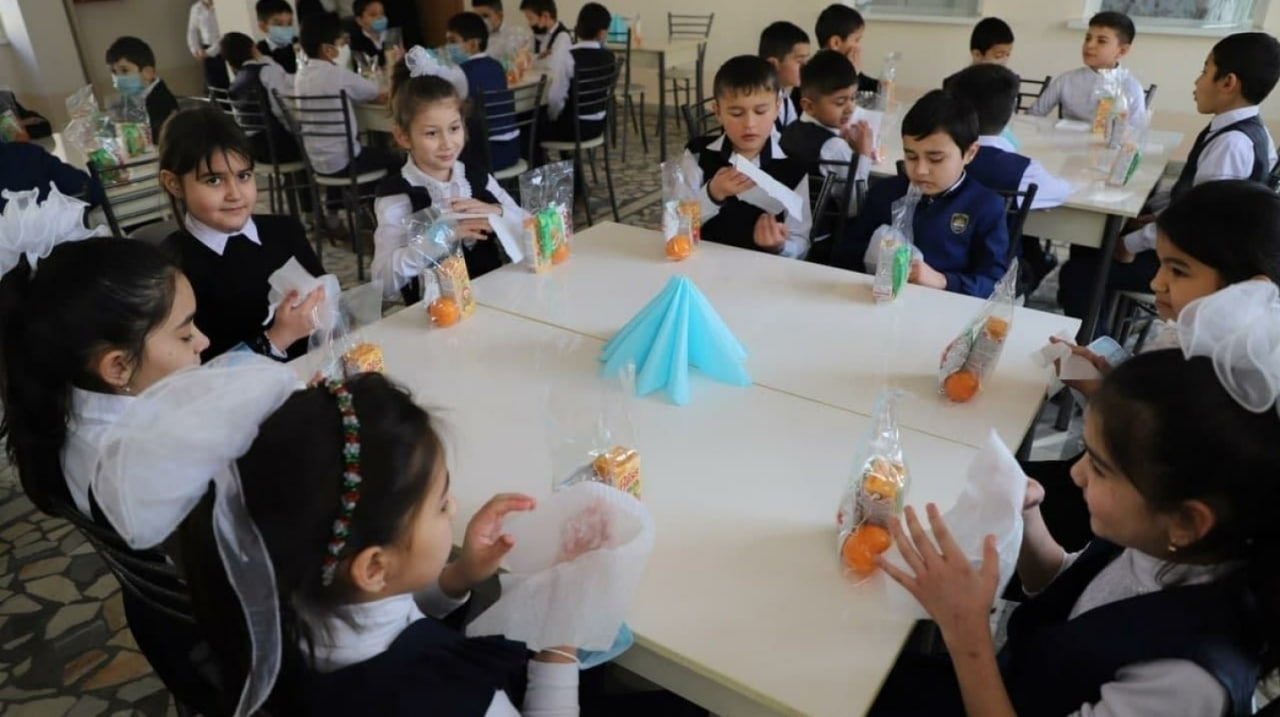Free lunches help increase schoolchildren’s attendance – IMRS experts
The Institute for Macroeconomic and Regional Studies studied how free meals in primary schools affect children’s attendance and health.

uzedu.uz
IMRS experts conducted a survey in 40 schools among more than 4 thousand children in grades 1-4, their parents and teachers in Karakalpakstan and Khorezm region – in regions where free meals began to be provided to primary school students.
The survey found that the implementation of the free school meals program during 2022-2023 was considered satisfactory.
In addition, as part of the IMRS project to assess the child well-being index in Uzbekistan, implemented with the support of the World Bank, a sociological survey was conducted in which more than 2 thousand households and more than 3 thousand children from all regions of the republic took part. The survey results made it possible to determine the connection of this program with children’s school attendance.
To assess the impact of free meals in schools on the attendance of primary school students, the Propensity score matching model was used, which identified households with similar characteristics in pilot regions (the Republic of Karakalpakstan or Khorezm region) and for comparison in control regions (the remaining 12 regions of the republic). When comparing school attendance rates between the two groups using a t-test, it was found that free lunches hypothetically increased school attendance rates by 8%.
In addition, it is known that healthy eating habits, expressed in the regularity of home-made breakfasts and the consumption of foods rich in vitamins, macro- and microelements, vegetables and fruits, serve not only to maintain the health of children, but also to improve their performance at school.
Having studied the experience of other countries and pilot regions of Uzbekistan, IMRS experts offered several recommendations:
- revising the diet of free school meals for primary grades in accordance with the living conditions of each region;
- organizing a kitchen or dining area in all schools, provide students (grades 1 to 4) with free hot meals at least once a day;
- complying with the standards for calorie content, composition and weight of dishes. The diet should include fortified foods (macro-micronutrients, vitamins, dietary fiber and biologically active substances), as well as foods with a limited content of fat, sugar and salt;
- including milk and dairy products in the school nutrition diet, as a result of which every child will gain height and weight for at least three years, the incidence of illness in children will decrease and metabolic disorders will decrease;
- the school nutrition program, by providing children with environmentally friendly food products enriched with microelements and vitamins, should develop local agriculture and the production of food and services;
- it is necessary to create an online electronic platform for assessing the quality of free meals in schools, which will strengthen public control and conduct regular monitoring;
- donors, both the national private sector and international organizations, can be attracted to expand the coverage of free school meals and finance the program in Uzbekistan.
According to the results of a survey of children in the Republic of Karakalpakstan and the Khorezm region, it was revealed that 77% of respondents periodically eat nuts, raisins, dried apricots, vegetables and fruits (in other regions of the republic – 88%). 61% of children in the Republic of Karakalpakstan and Khorezm region and 73% in other regions eat meat every day. 75% of schools in the Khorezm region and 53% of schools in the Republic of Karakalpakstan have a school canteen or buffet.
Related News

15:13 / 17.12.2025
Perceived inflation in Uzbekistan drops to lowest level in years

10:34 / 26.07.2025
Central Bank survey: People prefer mid-value notes and rarely use UZS 200,000 bills

13:04 / 29.05.2025
South Korea funds AI-driven phone survey system in Uzbekistan

19:34 / 16.05.2024



